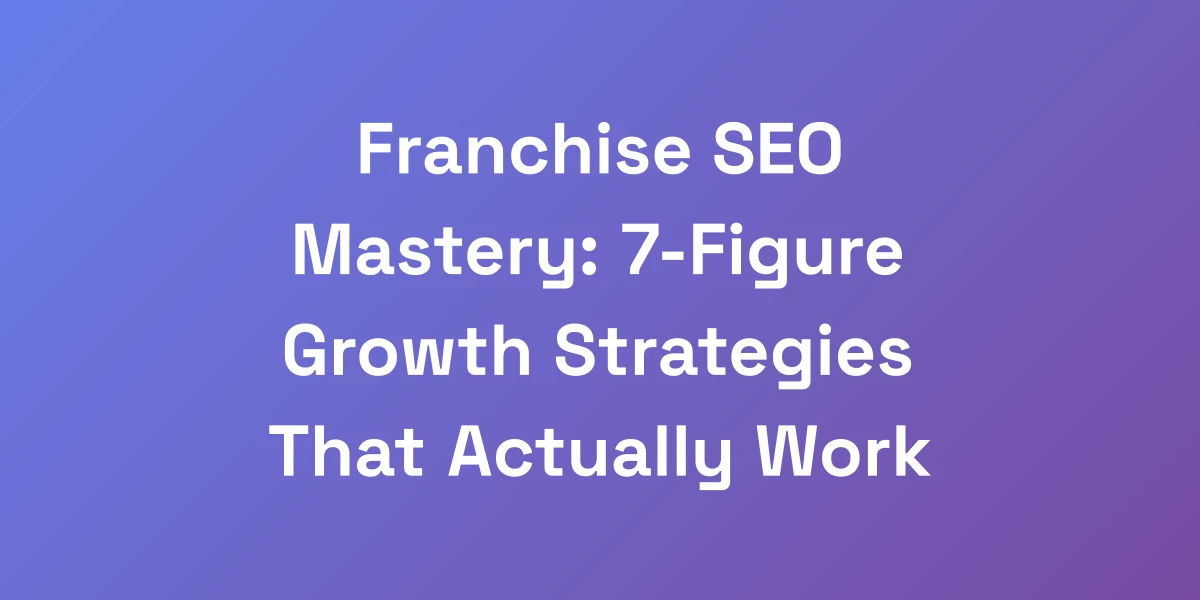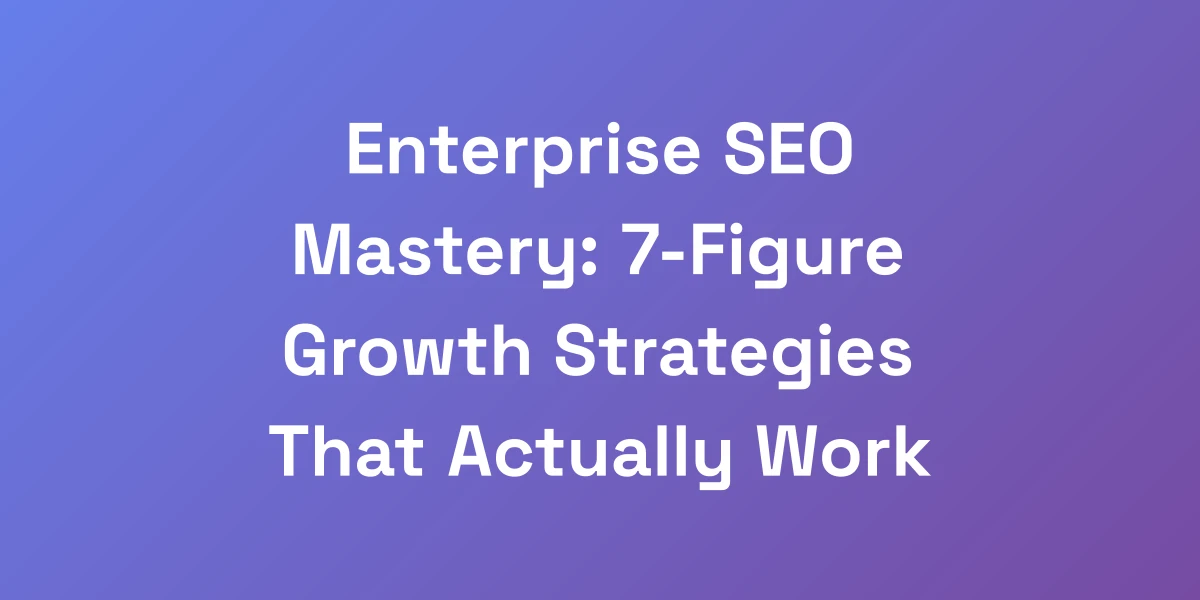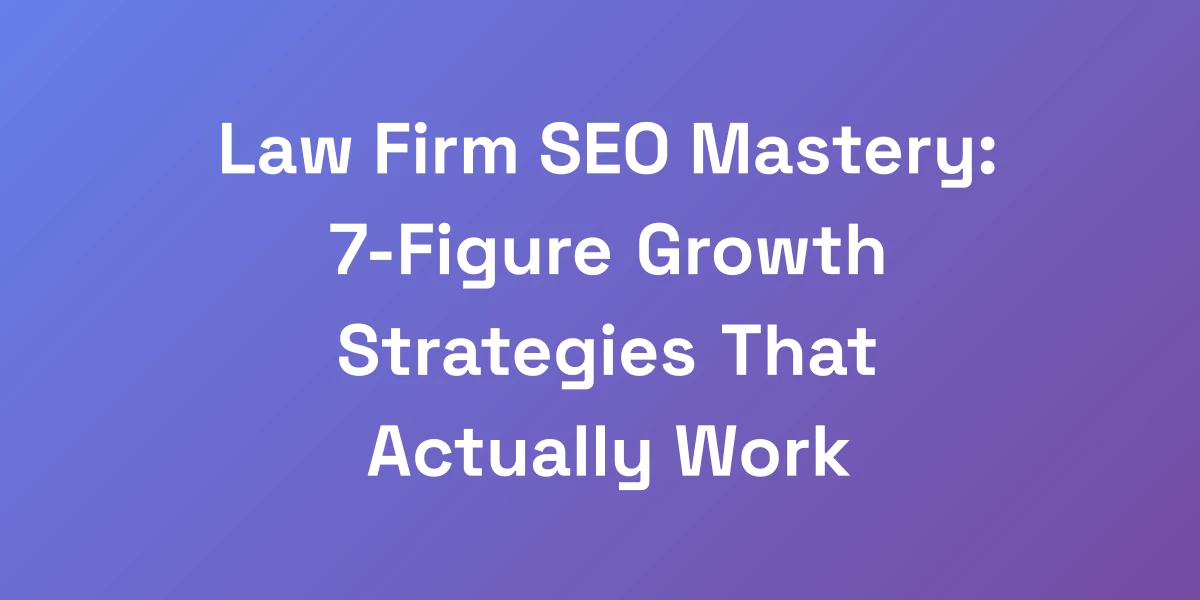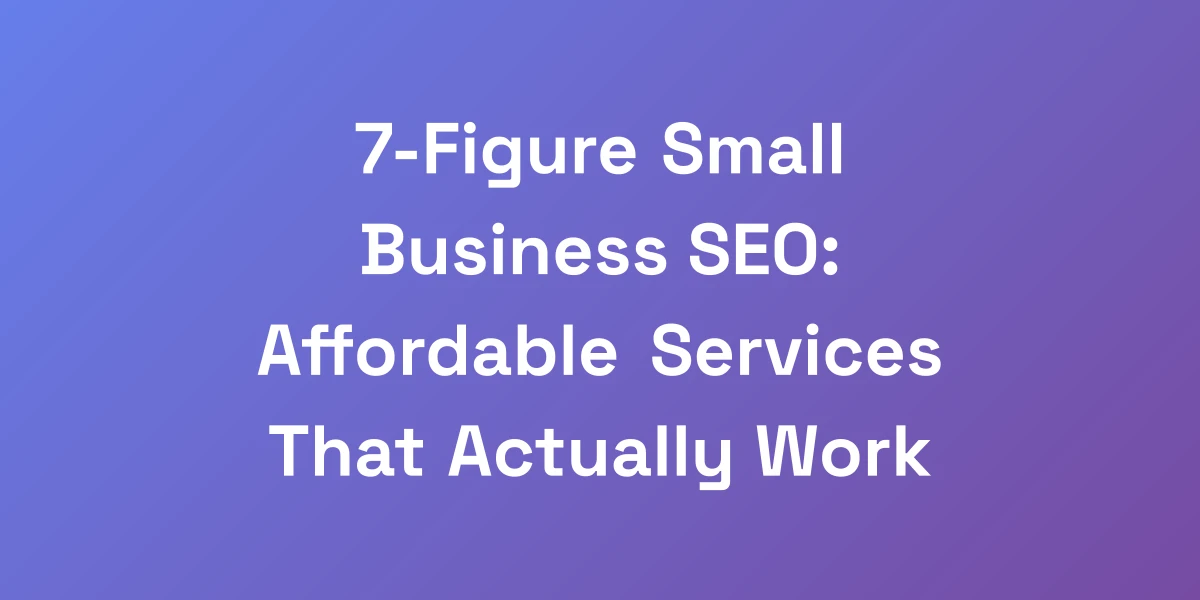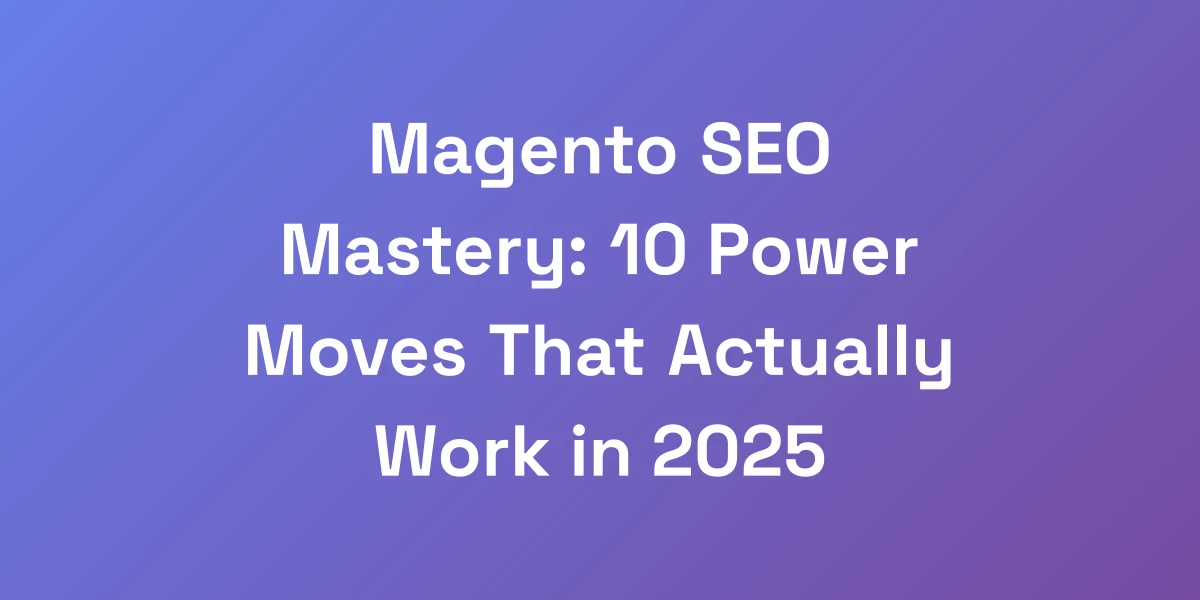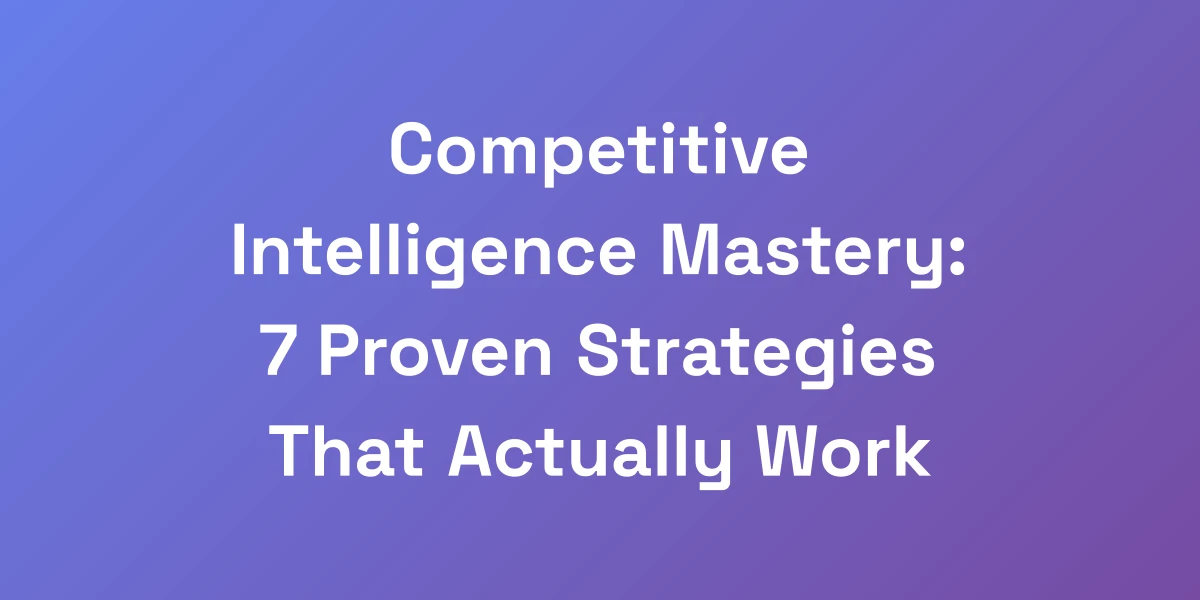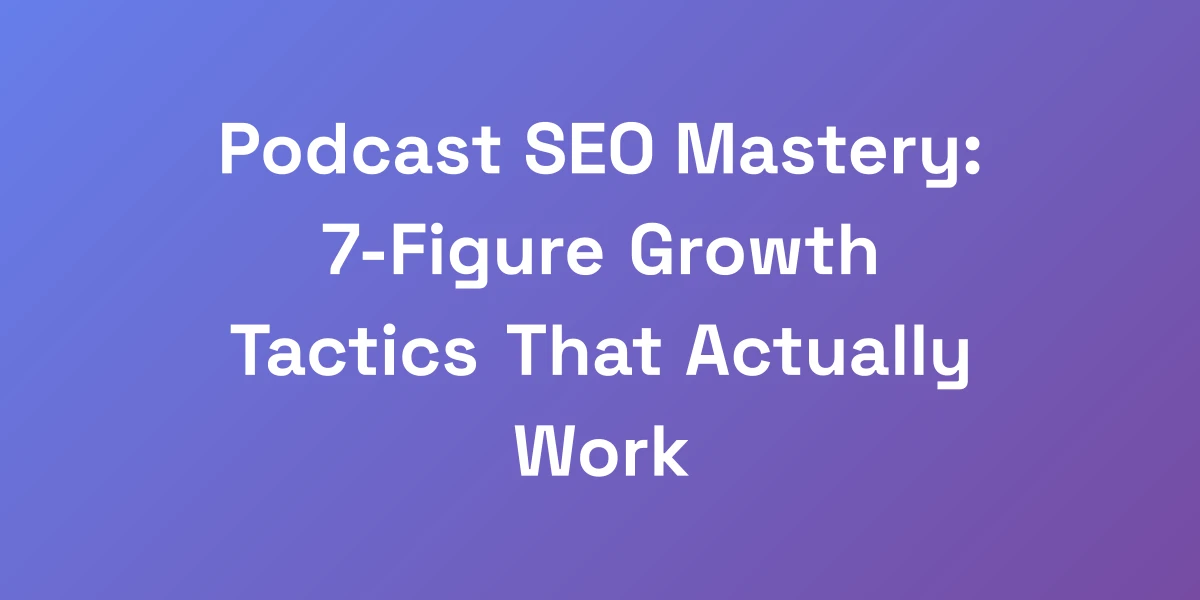
Podcast SEO Mastery: 7-Figure Growth Tactics That Actually Work
Mar 4, 2025 | By [email protected]
Podcasting is exploding. Everyone’s jumping on the bandwagon, but here’s the hard truth: most podcasters are struggling to stand out. Why? Because they’re ignoring one of the most crucial elements for success—podcast SEO. Let’s get one thing straight: you could have the most compelling content, but if it’s buried in the depths of search results, it’s practically invisible.
We’ve seen it time and again—podcasters pouring their hearts into episodes, only to find their audience stalling. It’s frustrating, right? So, what’s the secret sauce that separates the thriving podcasts from those that barely make a splash? It’s a disciplined, systematic approach to SEO. No gimmicks, no fanciful tricks. Just proven strategies that drive real results.
Imagine scaling your podcast to 7-figures with millions of downloads. Sounds ambitious? It’s entirely achievable when you master SEO for podcasts. We’re diving deep into the tactics that have transformed ordinary shows into unstoppable growth machines. Ready to dominate your niche and maximize your podcast’s potential? Let’s break it down.
Why Most Podcasters Fail at SEO (And How to Win)
Let us hit you with some truth: 97% of podcasters are leaving money and listeners on the table because they’re doing SEO wrong. We’ve built multiple 7-figure businesses, and we can tell you—podcast SEO isn’t about fancy tricks. It’s about systematic execution of proven strategies like the 10 insider podcast SEO tips that actually move the needle. Most podcasters focus on the wrong metrics, waste time on pointless optimizations, and wonder why they’re not growing. Let’s fix that. We’re going to show you exactly how to dominate your niche using the same strategies that grew our podcast to millions of downloads.
The Hidden Cost of Poor Podcast SEO
Think about it: every day your podcast isn’t optimized properly, you’re potentially missing out on thousands of listeners. It’s not just about lost downloads; it’s about every missed opportunity for sponsorships, collaborations, and monetization. Poor SEO leads to:
- Lower visibility on major platforms like Spotify and Apple Podcasts
- Decreased listener engagement and retention
- Missed revenue streams from advertising and partnerships
We’ve seen podcasts struggle because they overlooked these critical aspects. Addressing poor SEO can turn the tide, transforming stagnant growth into explosive success.
The Three Pillars of Podcast Search Visibility
To conquer the podcasting world, focus on these three pillars:
- Metadata Optimization: This includes your titles, descriptions, tags, and categories. Think of metadata as the DNA of your podcast, determining how easily search engines can find and rank your content.
- Content Quality: Superior content naturally attracts more listeners and engagement, which signals to search platforms that your podcast is valuable.
- User Engagement: Encourage listeners to interact through reviews, shares, and subscriptions. Higher engagement boosts your ranking on platforms that value listener behavior.
Mastering these pillars ensures that your podcast is not just another show in the vast sea of content; it’s a standout beacon that attracts the right audience.
Why Traditional SEO Advice Fails for Podcasters
Traditional SEO often misses the mark for podcasts because it’s not tailored to the unique nature of audio content. Podcasters spend hours perfecting scripts, but here’s the kicker: if your automated SEO optimization isn’t aligned with how search engines index audio, all that effort goes unnoticed. Common mistakes include:
- Overlooking the importance of transcriptions
- Neglecting platform-specific optimization techniques
- Focusing too much on keywords and not enough on content structure
We’re here to break down these barriers and provide you with actionable strategies that are specifically designed for podcasting SEO.
The Rapid Growth Framework for Podcast SEO
Want a roadmap to 7-figure growth? Follow our Rapid Growth Framework:
- Define Your Niche: Know exactly who your audience is and what they’re searching for.
- Optimize Metadata: Use targeted keywords in your titles, descriptions, and tags.
- Enhance Content Quality: Deliver value in every episode to keep listeners coming back.
- Boost Engagement: Actively seek reviews, subscriptions, and shares to increase your podcast’s visibility.
- Analyze and Adapt: Continuously monitor performance metrics and adjust your strategies accordingly.
This framework is the backbone of our podcast SEO success, driving consistent growth by focusing on what truly matters.
The Ultimate Podcast Metadata Optimization Blueprint
Listen closely: your podcast’s metadata is like the DNA of your show in the digital world. Every single element—from your show title to your episode descriptions—is a potential goldmine for visibility. But here’s what nobody tells you: it’s not just about stuffing keywords. It’s about creating a strategic architecture that search engines and humans both love. We’ve tested this across hundreds of episodes, and we’re going to show you the exact framework that consistently drives results.
Crafting Click-Worthy Episode Titles That Rank
Your episode titles are the first impression you make on potential listeners. To make them click, you need to:
- Include Relevant Keywords: Ensure your titles contain terms your audience is searching for.
- Be Descriptive and Specific: Avoid vague titles. Clearly convey what the episode is about.
- Create a Sense of Urgency or Curiosity: Use powerful words that prompt action or intrigue.
For example, instead of “Marketing Tips,” go for “10 Proven Marketing Strategies That Skyrocket Your Business.”
The Perfect Episode Description Formula
Your episode descriptions are SEO goldmines. To optimize them:
- Start with a Strong Hook: Capture attention within the first few lines.
- Use Targeted Keywords Naturally: Integrate seo for podcasts and related terms seamlessly.
- Provide a Detailed Summary: Outline what listeners can expect without giving away everything.
- Include Timestamps and Links: Enhance usability and provide additional resources.
Think of your description as a mini web page tailored for both listeners and search engines.
Advanced Tagging Strategies for Maximum Visibility
Tags are underutilized assets in podcast SEO. To maximize their impact:
- Use Specific Tags: Instead of generic tags like “business,” use “digital marketing” or “startup growth.”
- Incorporate Long-Tail Keywords: These are less competitive and more targeted.
- Align Tags with Your Content: Ensure all tags are relevant to the episode’s topics.
Proper tagging helps search engines understand your content, improving discoverability.
Optimizing Show Notes for Search Engine Success
Show notes are more than just summaries. They’re powerful SEO tools when used correctly. To optimize your show notes:
- Include Comprehensive Details: Provide in-depth information about the episode topics.
- Use Bullet Points and Subheadings: Enhance readability and structure.
- Link to Relevant Content: This can include previous episodes, related articles, or guest profiles.
Well-optimized show notes can significantly boost your SEO for podcasts by increasing keyword density and providing valuable content for search engines to index.
Metadata Best Practices Across Different Platforms
Each platform has its quirks when it comes to metadata optimization. Here’s how to navigate them:
- Spotify: Focus on user engagement. Incorporate keywords into descriptions and encourage playlist inclusions.
- Apple Podcasts: Prioritize ratings and reviews. Higher ratings can propel your podcast up the charts.
- Google Podcasts: Leverage Google’s indexing by optimizing for voice search best practices and natural language queries.
Adapting your metadata strategy to each platform ensures maximum visibility and effectiveness.
Content Optimization Strategies That Drive Real Growth
Here’s the brutal truth about podcast content: if you’re not optimizing every single element of your show, you’re leaving massive opportunities on the table. But we’re not talking about basic keyword stuffing or generic “tips.” We’re talking about systematic content architecture that turns your podcast into a discovery machine. The strategies we’re about to share have helped our clients generate millions in revenue through their podcasts.
Strategic Keyword Research for Podcasters
Effective seo for podcasts starts with strategic keyword research. Here’s how to do it:
- Identify Core Topics: Pinpoint the main themes of your podcast.
- Use Keyword Tools: Tools like Keyword Surfer or Google Keyword Planner can help find relevant keywords.
- Analyze Competitors: See what keywords successful podcasts in your niche are ranking for.
- Focus on Long-Tail Keywords: These are less competitive and more specific, attracting a targeted audience.
Integrate these keywords naturally into your titles, descriptions, and show notes to enhance discoverability.
Creating Search-Optimized Episode Scripts
Your episode scripts are a goldmine for SEO when optimized correctly. Here’s how:
- Include Keywords Naturally: Don’t force keywords; let them fit seamlessly into the conversation.
- Provide Value: Focus on delivering high-quality content that addresses your audience’s needs.
- Structure for Readability: Use clear headings and subheadings if sharing scripts online.
- Repurpose Valuable Sections: Extract key points for blog posts, social media, or newsletters.
Optimized scripts ensure that both listeners and search engines find your content valuable and relevant.
Transcription Optimization Techniques
Transcriptions can significantly boost your SEO for podcasts. To optimize them:
- Provide Full Transcriptions: Ensure every episode has a complete transcription available on your website.
- Optimize with Keywords: Integrate your target keywords naturally within the transcription.
- Improve Accessibility: Transcriptions make your content accessible to a wider audience, including those with hearing impairments.
Proper transcription optimization makes your podcast content searchable and more accessible, driving more traffic to your site.
Repurposing Content for Maximum SEO Impact
Repurposing is a powerful strategy to amplify your SEO efforts. Here’s how to maximize it:
- Blog Posts: Turn episode highlights or full transcripts into detailed blog posts.
- Social Media Snippets: Use key quotes or segments to engage your audience on social platforms.
- Video Content: Create YouTube videos based on your podcast episodes to reach a broader audience.
By repurposing content, you increase the number of entry points for new listeners to discover your podcast.
Voice Search Optimization for Podcasts
With the rise of smart speakers and voice assistants, optimizing for voice search is essential. Here’s how:
- Use Conversational Language: Think about how people speak rather than type when crafting your content.
- Answer Common Questions: Structure your episodes to address questions that listeners might ask their voice assistants.
- Optimize for Local Search: Incorporate location-based keywords if your podcast targets a specific geographic area.
Optimizing for voice search ensures your podcast remains discoverable in the evolving landscape of search technology.
Technical SEO Secrets for Podcast Domination
The technical side of seo for podcasts is where 90% of creators drop the ball. But here’s the thing: the platforms and algorithms are constantly evolving, and if you’re not staying ahead, you’re falling behind. We’ve spent hundreds of thousands testing what works, and we’re going to give you the exact technical blueprint that will put your show ahead of the competition. These aren’t theory—these are battle-tested strategies that work right now.
RSS Feed Optimization Techniques
Your RSS feed is the backbone of your podcast’s distribution. To optimize it:
- Ensure Proper Formatting: Follow the correct RSS standards to avoid distribution issues.
- Include Comprehensive Metadata: Titles, descriptions, images, and tags should be accurately filled out.
- Regular Updates: Keep your feed updated with new episodes promptly to maintain consistency.
- Validate Your RSS: Use RSS validation tools to ensure there are no errors.
An optimized RSS feed ensures that all platforms can correctly index and distribute your podcast, enhancing your overall SEO efforts.
Website Architecture for Podcast SEO
Your website plays a crucial role in your podcast’s SEO. Here’s how to optimize it:
- Clean, Organized Structure: Ensure your site is easy to navigate with clear categories and sections.
- Embed Episodes: Each podcast episode should have its own dedicated page with optimized metadata.
- Responsive Design: Your website should look and function well on all devices, especially mobile.
- Improve Internal Linking: Link related episodes and content to keep users engaged and reduce bounce rates.
A well-architected website not only enhances user experience but also boosts your search engine rankings.
Mobile Optimization Strategies
With the majority of podcast listeners accessing content via mobile, optimizing for mobile is non-negotiable. Here’s how:
- Ensure Fast Load Times: Slow websites drive users away. Optimize images, leverage browser caching, and minimize CSS and JavaScript.
- Responsive Design: Your site should adapt seamlessly to different screen sizes and orientations.
- Optimize Touch Elements: Make sure buttons and links are easily clickable without zooming.
By prioritizing mobile optimization, you enhance the user experience and improve your rankings on mobile search results.
Speed and Performance Optimization
Page speed is a critical factor in SEO. Faster websites rank better and provide a superior user experience. To optimize speed and performance:
- Use a Content Delivery Network (CDN): CDNs store copies of your site across various locations to speed up delivery.
- Compress Images: Reduce image sizes without sacrificing quality to speed up load times.
- Minimize HTTP Requests: Limit the number of elements on your page to reduce load times.
- Enable Browser Caching: Allow your browser to store elements of your site locally to speed up repeat visits.
Optimizing speed and performance directly impacts your SEO rankings and user satisfaction.
Cross-Platform Technical Requirements
Each podcast platform has its own set of technical requirements. To ensure cross-platform success:
- Adhere to Submission Guidelines: Follow the specific requirements for platforms like Apple Podcasts, Spotify, and Google Podcasts.
- Consistent Metadata Across Platforms: Ensure your titles, descriptions, and tags are uniform across all platforms to avoid confusion and maximize SEO impact.
- Monitor Platform Updates: Stay informed about any changes to submission guidelines or technical requirements to maintain your podcast’s visibility.
Meeting cross-platform technical requirements ensures that your podcast is accessible and optimized no matter where listeners find you.
Measuring and Scaling Your Podcast’s SEO Success
Let us be clear: if you’re not measuring your podcast’s SEO performance, you’re flying blind. But most podcasters track the wrong metrics and make decisions based on incomplete data. We’re going to show you exactly what to measure, how to measure it, and most importantly, how to use that data to scale your show’s growth. These are the same metrics we use to grow million-dollar podcast brands.
Essential SEO Analytics for Podcasters
To effectively measure your seo for podcasts, focus on these key analytics:
- Download Numbers: Track downloads per episode to gauge overall popularity.
- Listener Engagement: Monitor metrics like average listen duration and listener retention rates.
- Source of Traffic: Identify where your listeners are finding your podcast (e.g., Google, Spotify search).
- Keyword Rankings: Track the performance of your targeted keywords in search results.
These metrics provide a comprehensive view of your podcast’s SEO performance and highlight areas for improvement.
Growth Tracking and Optimization
Tracking growth is about more than just counting downloads. Here’s how to optimize growth tracking:
- Set Clear Goals: Define what success looks like, whether it’s a certain number of downloads, listener engagement, or revenue targets.
- Use Analytics Tools: Implement tools like Google Podcasts Manager and Captivate.fm to track your performance metrics accurately.
- Regularly Review Data: Schedule regular check-ins to assess your progress towards your goals and adjust strategies as needed.
Continuous growth tracking allows you to make informed decisions and pivot strategies to accelerate your podcast’s success.
Competitive Analysis Framework
Understanding your competition is crucial for refining your SEO strategy. Follow this framework:
- Identify Competitors: List out the top podcasts in your niche.
- Analyze Their SEO: Examine their metadata, content structure, and engagement strategies.
- Benchmark Your Performance: Compare your metrics against your competitors to identify gaps and opportunities.
- Adopt and Adapt: Implement successful tactics from your competitors while maintaining your unique voice and strategy.
By understanding what works for others, you can refine your own strategies to stay competitive and stand out.
ROI Measurement Strategies
Measuring ROI in podcast SEO involves tracking both tangible and intangible benefits. Here’s how to approach it:
- Track Revenue Streams: Monitor income from sponsorships, ads, and merchandise linked to your podcast.
- Assess Listener Growth: Correlate increases in download numbers with your SEO efforts to determine which strategies are driving growth.
- Evaluate Engagement Metrics: Higher engagement often translates to better monetization opportunities.
- Calculate Cost vs. Benefit: Compare the investment in SEO strategies against the revenue generated to determine profitability.
Understanding your ROI helps prioritize the most effective SEO strategies and allocate resources efficiently.
Scaling Success Through Data
Once you’ve identified what works, scaling your podcast’s growth is the next step. Here’s how to leverage your data for scaling:
- Automate Successful Strategies: Use tools to automate SEO tasks that have proven effective, such as keyword integration and social media sharing.
- Expand Content Offerings: Based on listener feedback and data, create new content types that align with your audience’s interests.
- Invest in Marketing: Allocate a portion of your revenue towards marketing efforts that drive further growth.
- Collaborate and Network: Partner with other podcasters and influencers to tap into new audiences.
By leveraging auto SEO software, you can streamline these processes and achieve even greater results.
Conclusion
Mastering seo for podcasts is a game-changer. It transforms your podcast from a hidden gem into a powerhouse that attracts millions of listeners and generates substantial revenue. By implementing the strategies we’ve outlined—from metadata optimization to technical tweaks and data-driven scaling—you’re setting yourself up for unparalleled growth.
Ready to take your podcast to the next level? Start applying these SEO Trends 2024 growth tactics today and watch your show dominate your niche. Don’t just create great content; make sure it gets the visibility it deserves. Consider integrating affordable SEO for small business solutions to maximize your investment without breaking the bank.
What challenges have you faced with podcast SEO? Share your experiences in the comments below, and let’s grow together!
